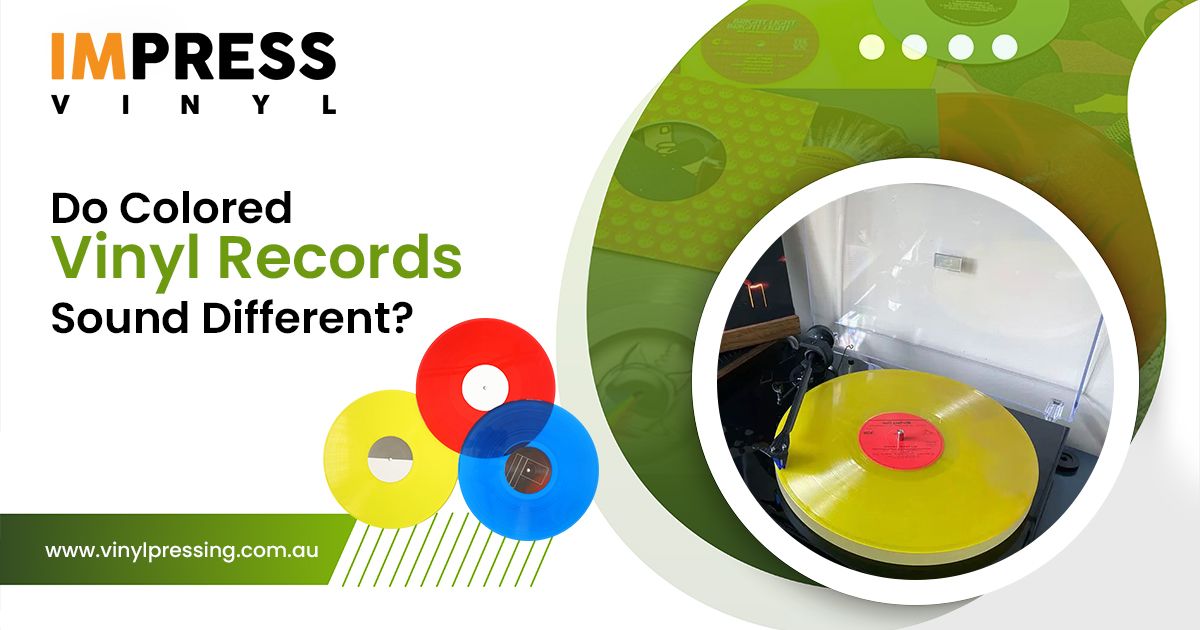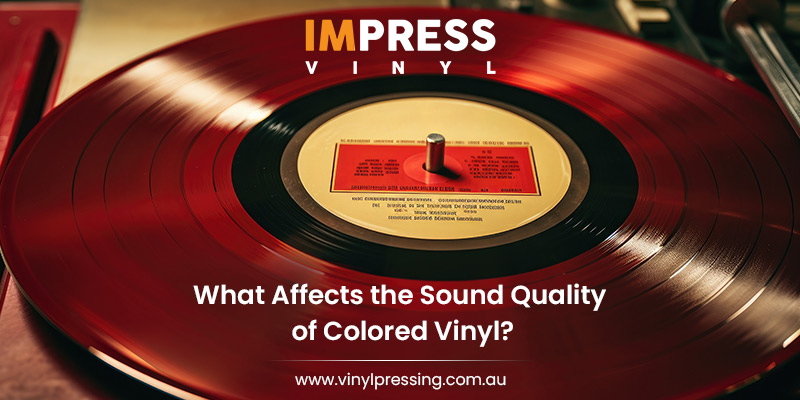Do Colored Vinyl Records Sound Different?

Have you ever wondered if your bright red or marbled blue vinyl sounds different from classic black records? Maybe you’ve heard rumors about colored vinyl being just a gimmick or that it compromises sound quality. If you’ve ever asked yourself, “Do colored vinyl records really sound different?”—you’re not alone. Vinyl enthusiasts worldwide are split on this intriguing debate.
Before we dive in, let’s acknowledge one thing: vinyl isn’t just about the sound; it’s an experience. The look, feel, and even the color of a record add to its allure. But when it comes to sound, is there a trade-off? Let’s explore the science and art behind colored vinyl to separate fact from fiction.
Know About: Vinyl Production
Vinyl records are made from a plastic material called polyvinyl chloride (PVC). This material is naturally clear, but for black vinyl records, manufacturers add carbon black, a pigment that not only gives the record its color but also strengthens the vinyl. The addition of carbon black improves durability, reduces surface noise, and ensures a smoother sound.
Colored vinyl, on the other hand, involves the use of various dyes or pigments to achieve the desired hues. These additives can change the chemical properties of the vinyl, potentially affecting its performance. While most manufacturers are able to create colored vinyl that performs similarly to black vinyl, there are variables that could result in slight differences in sound quality.
Do Colored Vinyl Records Really Sound Different?
The most common argument is “colored v/s black vinyl record” . Many believe that colored vinyl does not sound as good as black vinyl. It is also believed that dyes and pigments in the vinyl may interfere with the grooves, hence causing less quality of the sound. However, research indicates otherwise.
Most modern colored vinyl pressings are done using the same high standards of manufacturing that ensure the pristine sound quality like black vinyl.
Most of the time, the difference cannot be noticed by the listener’s ear. Quality of the pressing, mastering process and of the vinyl itself will weigh much more than its color. For instance, colored vinyl records produced from a master of a well-reputed plant should sound the same as that black vinyl record produced with the same master.
Why Do Collectors Love Colored Vinyl?
The appeal of colored vinyl goes beyond sound quality. Many collectors are attracted to the aesthetic value that colored records can offer. Vinyl records are regarded not only as a music medium but as collectibles. The striking colors, limited edition releases, and designs make colored vinyl visually pleasing.
Colorful vinyl collectors are always seeking their uniqueness in color, adding this kind of exclusivity and scarcity to their collection. Artists and record labels many times use limited edition runs in colorful vinyl, featuring special artwork or packaging for that added special feel about the record. To a collector, owning something really unique, eye-catching piece of music history is half the deal.
While it does make a difference in quality of the sound, for many, it’s about the experience—the striking look of that record on a turntable or the thrill of possessing something rare and collectible.
Does the Color Affect the Sound Quality?
So, does colored vinyl sound different? For the most part, the color itself does not significantly impact sound quality. The real determinant of sound is the quality of the pressing. Records pressed at reputable plants using high-quality materials will generally sound good, regardless of whether they are black, red, green, or any other color.
In fact, many modern pressings of colored vinyl record sound quality are made with the same attention to detail as traditional black vinyl. The grooves are cut from the same master and, usually, the quality of vinyl material used.
In general, the quality of the sound is very comparable to that of black vinyl.
However, some types of colored vinyl will have a higher risk of producing surface noise from picture discs or records with multiple colours mixed together in their vinyl mixture or the additional print layers.
These records may not always perform as well as single-color vinyl. This is something to consider when purchasing colored vinyl, as not all pressings are created equal.
What Affects the Sound Quality of Colored Vinyl?
The colour itself is not a cause of poor sound quality. There are other factors involved when using colored vinyl records and in those performances.

-
Quality press works:
The sound quality is a factor of the quality of the pressing plant. Quality press works should have precise cutting equipment to accurately cut grooves and defect-free vinyl. Trustable pressing plants should put out good sounding black and colored vinyl.
-
Material:
The vinyl material used for colored records may differ slightly from black vinyl. The addition of colorants and other additives can alter the consistency of the material, potentially causing variations in sound. However, these differences are usually minimal, especially when the pressing is done well.
-
Mastering Process:
The way the music is mastered also impacts the sound quality of the vinyl. A well-mastered album will sound better on any type of vinyl, including colored vinyl.
-
Manufacturing Standards:
Colored vinyl records pressed at lower-quality facilities or made with cheaper materials may have issues such as warping, surface noise, or reduced fidelity. These issues are more common in cheaper, mass-produced colored vinyl, especially in novelty releases.
Should You Choose Colored Vinyl?
It is, therefore, a matter of personal preference. If you are someone who is a sound quality freak, then you may want to spend your money on records from reliable manufacturers, no matter what color they come in.
But if you are one of those vinyl collectors who appreciate the uniqueness of aesthetics, limited editions, and beautiful designs, then custom vinyl records will give you that extra dimension to your experience.
If sound quality is a concern, then one should always read reviews and look for feedback on particular pressings before buying. Many collectors are perfectly happy with the sound of well-pressed colored vinyl, while others prefer the dependability of good old-fashioned black vinyl for critical listening.
Are You Ready to Spin in Color?
Imagine putting on a record that doesn’t just sound amazing but also turns heads with its stunning design. Colored vinyl offers a blend of aesthetics and sound that can elevate your listening experience.
But here’s the real question: What will your next vinyl be—classic black or a bold colorway?
Conclusion
Do colored vinyl records sound different? Yes they do, but in only quite subtle ways most listeners never will notice. The great magic of colored vinyl lies somewhere else: that it gets art and music together in quite a visually as well as aurally enthralling experience.
We understand at vinylpressing that creating an exclusive, special experience is as important as anything else. Whether you’re a seasoned collector or new to the world of vinyl, we here to celebrate art in sound and design with you.
Are you ready to add vibrant color to your vinyl collection? Explore our high-quality vinyl pressing services and create the perfect colored record for your music! Contact vinylpressing today to start your custom vinyl project!